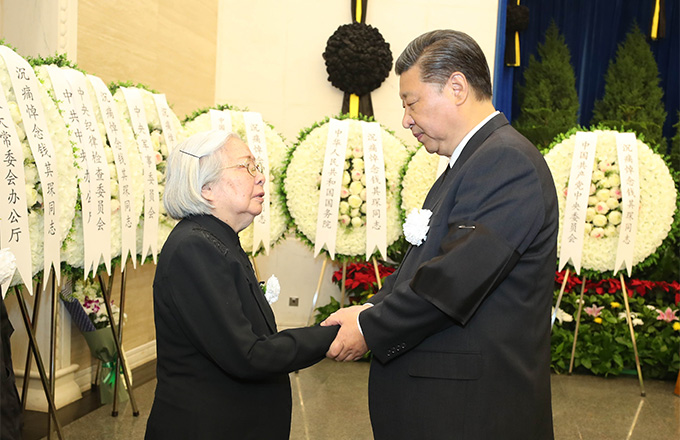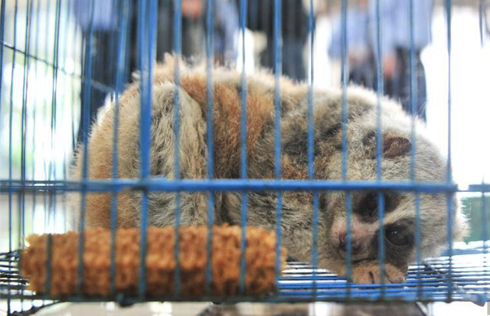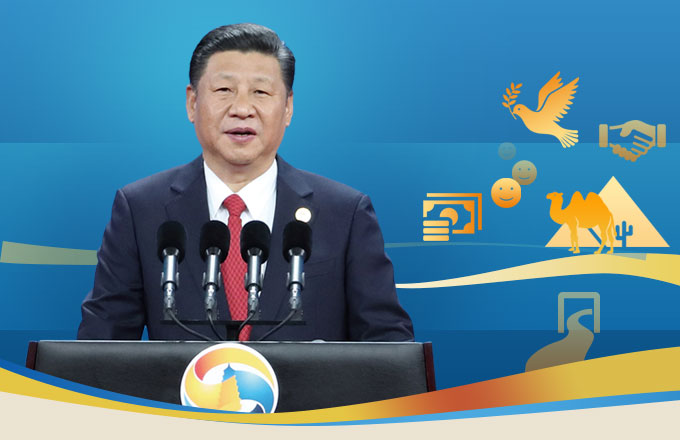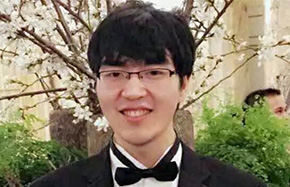Single mom spends 29 years raising son with cerebral palsy, now he is at Harvard
Shouldering the family's burden
"Of all the disabilities, I was most afraid that Ding Zheng would be mentally disabled," Zou recalled.
She started to take Ding to Hubei Provincial Hospital of Traditional Chinese Medicine to check his intelligence when he was less than 100 days old.
With continuous treatment, the day finally came when the doctor said Ding's intelligence level was normal after the boy turned one year of age.
"Nothing was more soothing than the news that my precious boy has normal intelligence," Zou told Xinhua.
However, due to damaged motor neurons in the cerebellum, Ding had great difficulties in sports: He could not hold things until the age of one; he learnt to stand at the age of two, walk at three and jump at six. Zou instilled perseverance into her son and never let him give up.
Ding needed massage treatment three times a week, costing five yuan (about 0.7 U.S. dollars) for each session. But Zou's salary as a teacher was just over 100 yuan (about 14.5 dollars) in the 1990s. There was no insurance covering Ding's rehabilitation.
The family was packed together into a room of less than 20 square meters. Whenever there was rain, basins and buckets were put on the bed to collect the rain drops.
In order to make a living and treat Ding's illness, Zou did many part-time jobs, including selling insurance after work for five years.
"I started to treat Ding Zheng when he was under one year old and was suffering from severe cerebral palsy. It was because his mother paid special attention to his illness, took him to our hospital for treatment at a very early age and continued his treatment non-stop for over ten years that he could recover to such a great extent. Early and continuous treatment for cerebral palsy patients is crucial," said 75-year-old Xiao Daiqi, who was a doctor at the department of pediatrics in Hubei Provincial Hospital of Traditional Chinese Medicine.
"Many hypoxic brain damage patients have low intelligence. I think, in Ding Zheng's case, his mother's unwavering support for early and continuous treatment for him played a key role in his recovery," the doctor told Xinhua.
"My mom has undergone huge hardships to bring me up. When I was young, once we encountered heavy snow when she carried me by bike to the hospital for massage treatment. Suddenly, the bike fell over into the mud. When my mom helped me up, the bike fell down; when she lifted the bike, I fell down. The moment we reached the hospital, both of us were covered with mud," said Ding, adding that even the doctor was moved by Zou's persistence.
"If I took a day off in bad weather, what would happen if Ding Zheng or I got sick? Since I chose to rescue him 29 years ago, I tried my best to cure him of the illness," Zou said.
"The moments when my child stood up, walked and called me 'mommy' for the first time are the happiest in my life; it's like receiving a gift from heaven. I feel I'm a lucky mom," Zou said.
Strict with her son
Some may say Zou shows her son a lot of "tough love."
Using chopsticks, a skill that comes naturally to most Chinese children, is a tremendously difficult task for Ding because of his illness. Many friends and neighbors persuaded Zou to allow Ding to quit.
"Using chopsticks is a must-do for Chinese people. If he is the only one who does not use chopsticks at the table, people will get curious. And then he has to explain to everybody that he has cerebral palsy, which will surely hurt his self-esteem," said Zou, under whose strict guidance for over a year, Ding finally learnt how to use chopsticks.
Zou tried everything she could to help Ding to overcome any obstacles his handicap had created.
"I don't want him to feel ashamed about his illness......I ask him to work harder than others and have higher requirements of him," said Zou.
Ding had difficulty holding a pen. So, Zou taught him to draw some shapes with thick-bodied pens by holding his hand, and then gradually changing to thin pens. Even though Ding was weak in his physical movements, he started learning how to read from his mother at the tender age of one, and he knew more than 100 Chinese characters before he was two years old.
But Zou neither helped Ding with his homework nor forced him to participate in training courses.
"My mom's catch-phrase is 'Don't ask me questions about your homework, I'm illiterate,' which I think is also a kind of educational concept," said Ding, adding that his mother was focusing on instilling good habits into him instead of helping him solve concrete difficulties.

























